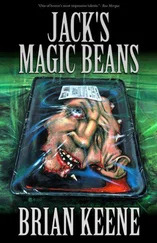“I measured it out, this is the best distance for sound quality. I’ll be able to hear you best from here. This warehouse is no concert hall. Or club. I get consignments of piping, sheet metal, wiring, tires, all kinds of stuff. Every time the sound changes.”
He brought more sheet music this time. And he made me a stand for the music. When I arrived the stand would already be waiting in my circle with the music lying open on it.
“Let’s begin with what you have in front of you there,” he would say, to stop me from changing the order of the sheets. Then he’d put his chair in his circle, and have me take my place in mine. “Stand up straight though. Not like in that band of yours, where you all slouch.”
He always had to run down the band. I guessed it must be his new way of weaning me off them. He did it kind of casually, in a mild way, because he’d stopped telling me to quit the band.
Often my legs would be shaking under me, after all I’d been working on my feet all day long on the site, but he never let me sit down even for a minute. There was another chair in the warehouse, when he was writing out a chit he’d offer you a seat. But whenever I came for my lesson, the other chair would always be put aside at the far end of the warehouse.
“You need to be on your feet,” he’d repeat. “When you’re standing your diaphragm works better, you take more air into your lungs. Breathing is really important with the saxophone. You, your breathing is too shallow, and so you’re not blowing the instrument properly. Plus, a saxophonist has to have strong legs, a strong back, the whole spine has to be strong, then it’s easier to play. When you end up having to play all night because the party’s still going on, you won’t have to say your legs hurt.”
And let me tell you, my legs never feel tired. Sometimes here I have to walk and walk. Especially now, in the off-season. Like I said, during the day I’m obliged to make three rounds of all the cabins on both sides of the lake. And at least one in the night. When I walk around I know I’m really keeping a good eye on the place.
Excuse me, I have to get a drink of water, my throat’s dry. When you shell beans there’s always dust, that’s why. Would you like a drink too? It’s good water, from my well. No, it was here already. I just had it deepened and cleaned out. I had a pump put in, and they piped it up to my place. See, all I need to do is turn on the tap. Perhaps you’ll try some after all? Here, you’re welcome. It’s good, right? Spring water. They tapped into a spring. Let me tell you, nothing quenches your thirst like this stuff. Even when I’m drinking coffee or tea, I have to have a glass of water to go with it.
When they were going to sink the well, father brought in a dowser. I don’t know where he found him, he brought him back in the wagon. The guy searched and searched, his rod kept getting pulled down toward the ground, but he wasn’t satisfied. Finally he said that he’d felt the cold, they should sink the shaft here.
Lots of people from the cabins come and get water from me. They can’t say enough about it, It’s so good, it’s so good. Whoever went around praising water back in the day, you tell me that. The most you might say is that it was hard or soft. Spring water’s always hard. For washing hair or bathing we’d collect rainwater. The animals were watered in the Rutka. Laundry was done in the Rutka too. River water is soft. When they’re leaving for home, they bring canisters here so they’ll at least have water to make coffee or tea. A few canisters each. A line forms at the well and I have to go out and keep order so no one pushes in, and everyone gets an equal amount. Because some people even take it as a gift for their neighbors in the city. What are things coming to, giving water as a gift. Regular water. Would you ever have thought something like that would happen with water? Let me tell you, that’s the clearest measure of what’s wrong with the world. At times I have to limit them to two or three canisters each, the well isn’t bottomless. If the pump starts sucking up dirt it has to be cleaned afterwards. Then it takes at least twenty-four hours for the spring to fill up again.
You have to admit it’s good water. Another glass maybe? I’ll join you. Here where I’m standing there were always buckets of water, and on the wall over them was an embroidered motto that read, “Good water means good health.” More or less where you’re sitting, that was where he sat in his circle, and where I’m standing, that’s where I stood in mine. Let me tell you, I wasn’t convinced by those circles, I thought it was just some nonsense of his, and one day I told him so.
“Maybe we could try without the circles. People are making fun of me on the site. What do circles have to do with playing music?”
“They matter. One day you’ll figure out why,” he said. “Just keep standing there. Get used to it. You think you’ll have more space? Life isn’t lived sideways, it’s lived going down deeper. Likewise, you don’t play sideways, you play deep.”
He’d say that if I’d played the accordion I could have sat down, or the cello, a few other instruments. But not the saxophone. The sax was played from the legs, all the way up above the head. In that way the air flows into the instrument by itself, you don’t have to blow so much. You don’t have to puff your cheeks out and tense your jaw. You, you’re still all tense. You need to make the shape of the sounds with your lips, pass your tongue over them. Then the saxophone will become as tender as pain. Between you and it there ought to be pain. Otherwise you’ll remain strangers to one another. It’s a saxophone. But who are you?
You know, he became a lot gentler. He didn’t correct me so often, he listened more. At times I finished and he seemed to still be listening. It was only as I was leaving that he’d sometimes say I needed to improve this or that, work on one thing or another.
It’s also true that I was trying like never before. I was filled with a kind of doggedness, a hunger for playing. He’d say, That’s enough for today, and I’d ask him to listen to just one more thing or another, I’ll play it differently, just listen. He’d close his one good eye, you might have thought he was sleeping. Then suddenly he opened it wide:
“Play that again, I missed something the first time.”
Sometimes the watchmen would come in and tell us to wrap it up, because the warehouse couldn’t be open so long. They had to put the seals on. As it was they were turning a blind eye. When I left it would be nighttime, the site was so quiet I could scarcely believe it was the same place as during the day.
Each Sunday he’d give me the saxophone so I could practice when I got back from Mass. No, he never asked if I’d been. He only asked, So, did you manage to practice? At the rooming house I never could. From morning they’d be playing cards and drinking vodka there. Even when someone went to church, they’d come home and immediately go back to their vodka and cards.
When the weather was good I’d go into the fields or on the meadow. On Sundays no one was out in the fields, and on the meadows at most there were cows. Empty fields aren’t a good place to play. You play, but it’s like your music melts away. The meadows were a bit better. In the meadows I’d go out among the cows. And let me tell you, the saxophone took on a sound that it never did afterwards in other places, not just the warehouse, but in any night club, not even in a concert hall. You won’t believe it, but the cows would stop tearing up the grass, they’d lift their heads, stand still, and listen.
I tried playing in various locations to see how the sound changed depending on where I was. I don’t know how it would be here on the lake, in the woods, or when the Rutka still came through this way, in the village when there was still a village here. I really learned a lot from that. Same saxophone, same mouthpiece, same reed, and of course I was the same, but each place was different from other places. For example when I stood by a river, it was different where the current ran fast than where it flowed slowly.
Читать дальше












